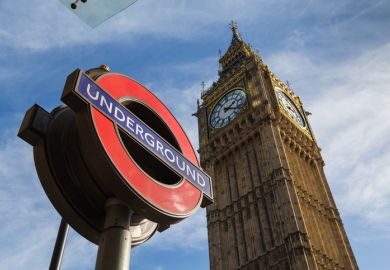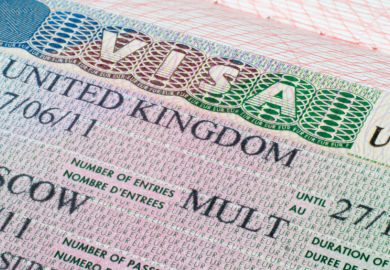The UK government’s rhetoric on attracting only the “brightest and best” overseas students, often used by Theresa May, is “confusing and dangerous”, according to Conservative peer and former universities minister Lord Willetts.
Lord Willetts also criticised plans, outlined by the Tories, to differentiate the visa regime for universities based on their “quality”, in comments at the Prosperity UK conference.
The conference – which combined city, industry and university speakers under the strapline “coming together to make a success of Brexit” in London on 26 April – was organised by Sir Paul Marshall, a hedge fund manager who was a donor to the Vote Leave campaign in the European Union referendum.
The nature of the UK’s immigration regime post Brexit is one key uncertainty for higher education.
Ms May, who has refused to remove students from the target to reduce net migration as home secretary and as prime minister, has often spoken of attracting the “brightest and best” students to the UK.
Lord Willetts told one session that “people who come here to study should be suitably qualified to benefit from a higher education in Britain” and that “we expect them, usually, to go back home”.
He added: “Thinking of them [students] as having to be the ‘brightest and best’ is to apply a migration mentality to what is actually the sale of a service, as a source of export revenues. We don’t say we are only going to sell cars produced in our motor factories to the brightest and best advanced drivers.”
Lord Willetts continued: “The ‘brightest and best’ model is a very confusing and dangerous model.”
Amber Rudd, the home secretary, last year pledged to introduce tougher rules for overseas students coming to the UK to study “low-quality” courses, instead prioritising the “best” universities. However, a promised consultation on those plans is yet to emerge.
Lord Willetts said the “brightest and best” model was “matched by another model, which is ‘they should only be coming to, quote, the best universities’”.
He referred to “all these stories around that they [overseas students] should be allowed to come and study at the Russell Group, but they shouldn’t be allowed to study at other universities”.
This was “another very dangerous model” as it misunderstood “the range and diversity of our higher education offer”, Lord Willetts said.
Louise Richardson, vice-chancellor of the University of Oxford, told another session that if UK higher education is to “maintain or indeed enhance our current position, we need the fewest possible constraints on the [international] movement of students and academics”.
She added of Brexit: “The standing of British universities is only possible because of the contribution of our European staff and funding from the European Research Council.”
She highlighted the UK’s domination of the table of European universities who gain most funding from Horizon 2020, the EU’s current research programme.
“We need to be able to continue to bid for this funding and we need to be able to continue to attract academics whose funding can be supported by the European Research Council,” Professor Richardson added.
She continued that “if we can compete globally for staff and students and research funding, then we can continue to lead the world”.
But Professor Richardson added that it was a “mistake to assume that we will be able to continue to do so, because I do believe that the future of our great universities is in jeopardy”.
Register to continue
Why register?
- Registration is free and only takes a moment
- Once registered, you can read 3 articles a month
- Sign up for our newsletter
Subscribe
Or subscribe for unlimited access to:
- Unlimited access to news, views, insights & reviews
- Digital editions
- Digital access to THE’s university and college rankings analysis
Already registered or a current subscriber?








